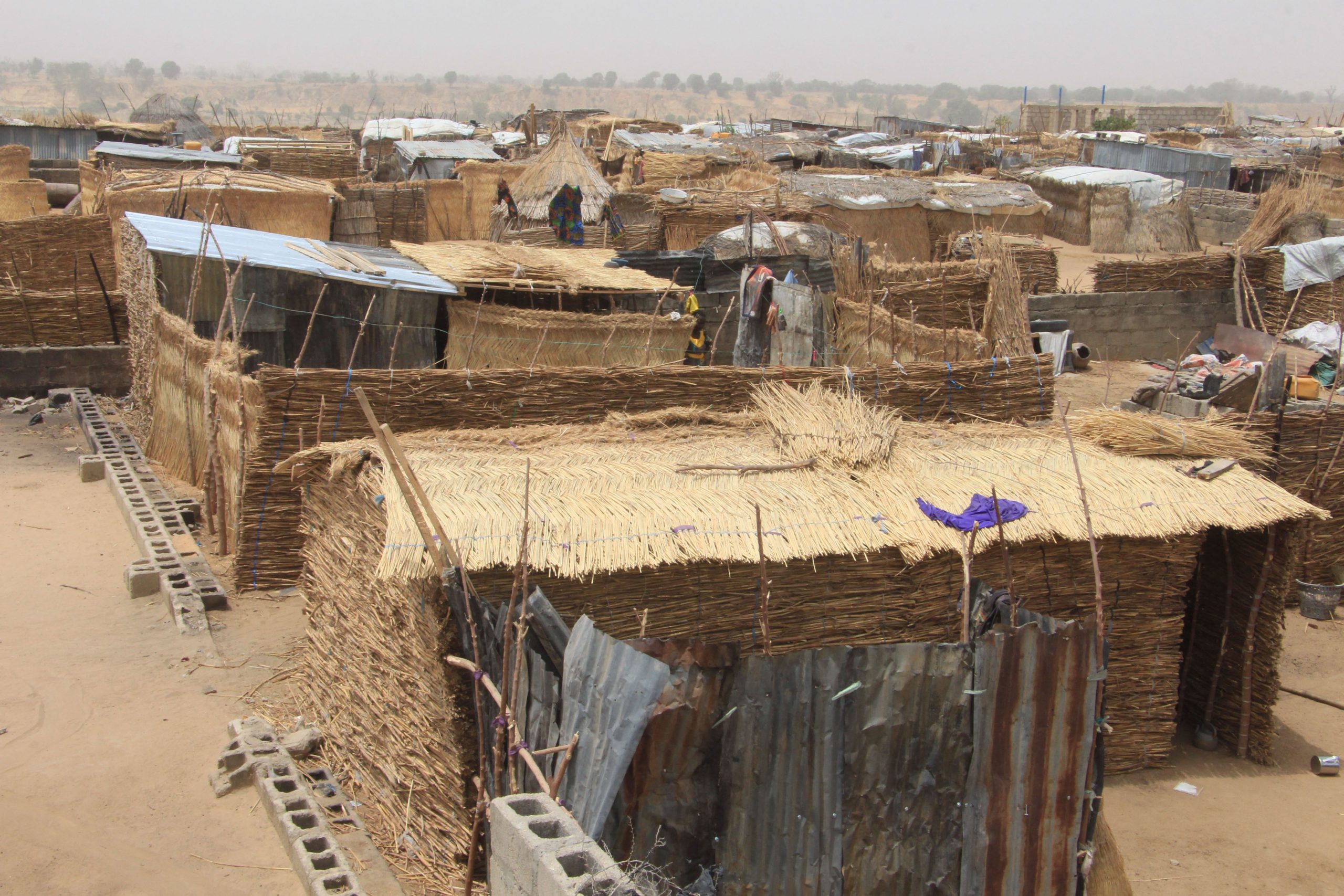
Borno hosts over 80 percent of the nearly two million people displaced from their homes by a conflict that has spread to parts of neighbouring Cameroon, Niger and Chad.
Despite years of aid provision, many camps and communities lack basic amenities. (Photo by Audu Marte / AFP)
No fewer than 20 civil society organisations in Nigeria have underscored the need for an inclusive social protection programme with universal coverage and adequate sustainable financing.
Under the aegis of civil society national dialogue on social protection, the leaders also emphasised the need for comprehensive social safety nets, data-driven decision-making, and effective implementation.
They spoke at a one-day dialogue in Abuja with the theme: “Towards an Inclusive and Sustainable Social Protection Programme in Nigeria”.
Delivering the keynote address, the Founding Executive Director, African Centre for Leadership, Strategy & Development (Centre LSD) and Coordinator, Civil Society Leaders Forum on Social Protection and Sustainable Development, Dr. Otive Igbuzor stressed the need for a robust initiative to link safety net intervention to productive livelihoods through access to finance, skills and employment opportunities.
Igbuzor also advocated for a review of the National Social Register in a transparent, participatory and credible manner.
According to him, as little as N10,000 monthly can change the lives of the poorest of the poor in rural areas over a given period of years.
He attributed why the country is yet to fully benefit from its Social Protection Programmes to include: ignorance, resource constraints, policy coherence and sustainability, inadequate capacity and corruption.
The policy analyst and development expert, therefore stressed the need to revive and scale up Social Investment Programmes in Nigeria to increase coverage, explaining that this was why Nigeria was declared the poverty capital of the world.
According to the World Poverty Clock 2023, Nigeria has the awful distinction of being the world capital of poverty, with 71 million people living in extreme poverty, while a National Bureau of Statistics data classified a total of 133 million people as multidimensionally poor.
Igbuzor said: “Despite the challenges, there are huge opportunities to advance social protection in Nigeria because there are huge numbers of people needing social protection and the moment is right to scale up and implement Social Protection in Nigeria. In order to do this the following actions are recommended:
“There is the need for increased budgetary allocation to Social Protection to match the country’s needs. Governments at all levels should re-engage the revised draft National Social Protection Policy (2021), engage in multi-stakeholder consultation and effectively implement the policy.
“The coverage of Social Investment programme in Nigeria should be comprehensive in line with the National Policy on Social Protection and should include child labour, the unemployed, persons with disability, old age, persons living with disability, children etc.
“The architecture for delivering Social Protection in Nigeria should be overhauled. The system of operation should be improved to entrench transparency and accountability. Systems of payment should be automated, transparent and amenable to monitoring by citizens and citizen groups.
“Sub-national level governments across the country should scale up investing in Social Protection schemes.
“There is the need for a robust initiative to link safety net intervention to productive livelihoods through access to finance, skills and employment opportunities.
“There is the need to push for shared prosperity agenda which will entail achieving broad based economic growth, creating jobs, reducing poverty and inequality and ensuring socio-economic prosperity for all Nigerians.”
At the panel discussion, other CSOs including One Campaign, African Centre for Leadership, Strategy & Development (Centre LSD), Connected Development, African Network for Environment and Economic Justice (ANEEJ) and Centre for Accountability and Inclusive Development (CAAID), also echoed Dr Igbuzor’s position.
In her address of welcome, the Deputy Coordinator, Faith Nwadashi, said the forum was established to educate citizens about the benefits of properly implemented Social Protection Programmes, advocate for the adoption of Comprehensive Social Protection programmes at all levels of government, promote laws, policies and programmes that will contribute to sustainable development in Nigeria, collaborate with development partners, private sector and government on the formulation, implementation and evaluation of Social Protection and Sustainable Development Programmes and position the Forum as the leading collective voice and driving force for Social Protection and Sustainable Development in the country.



